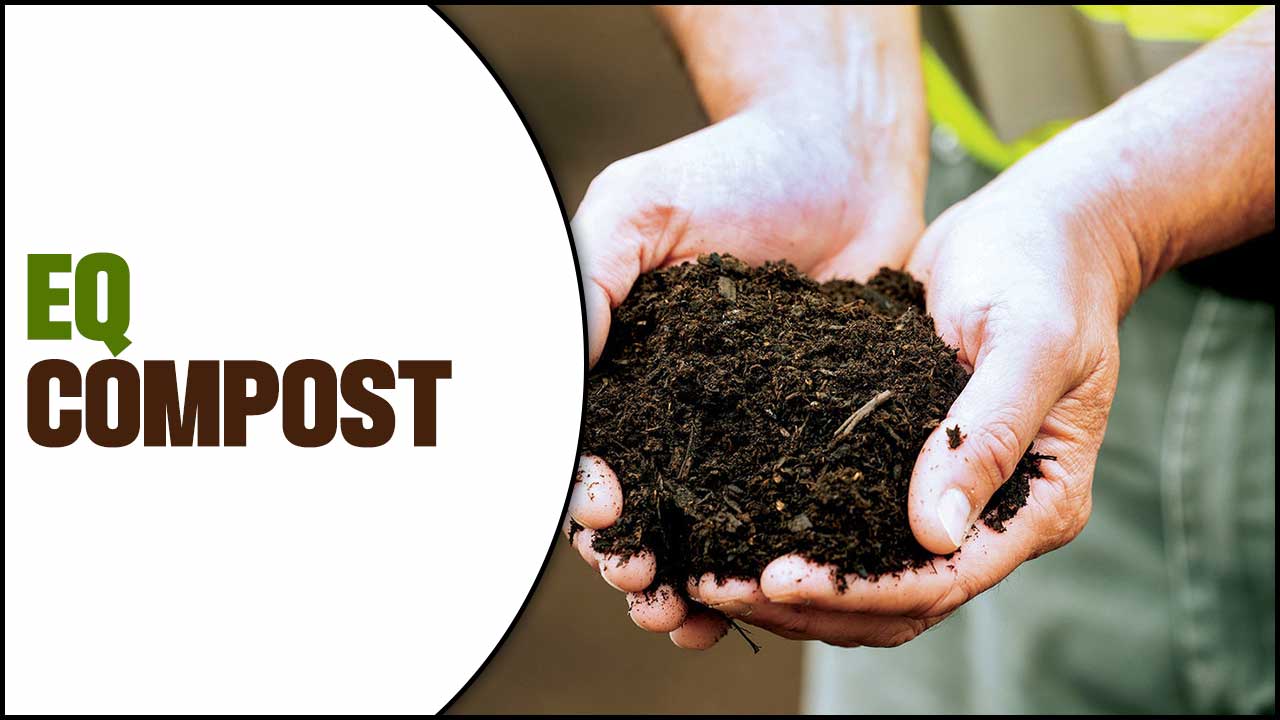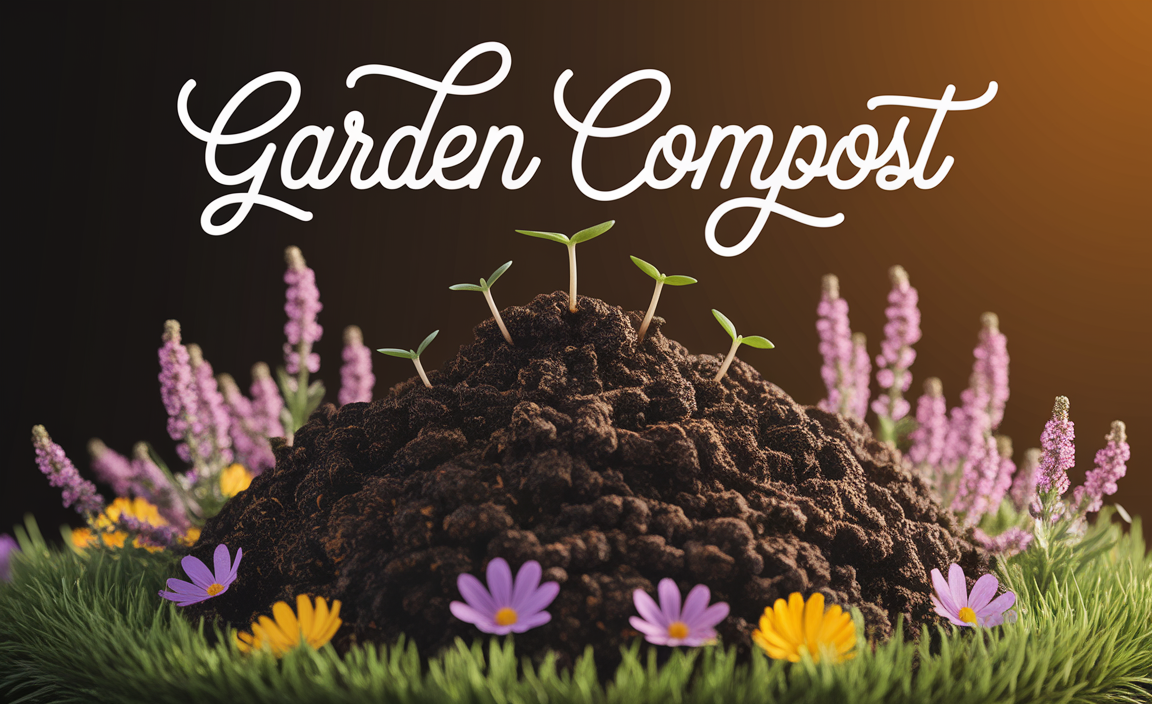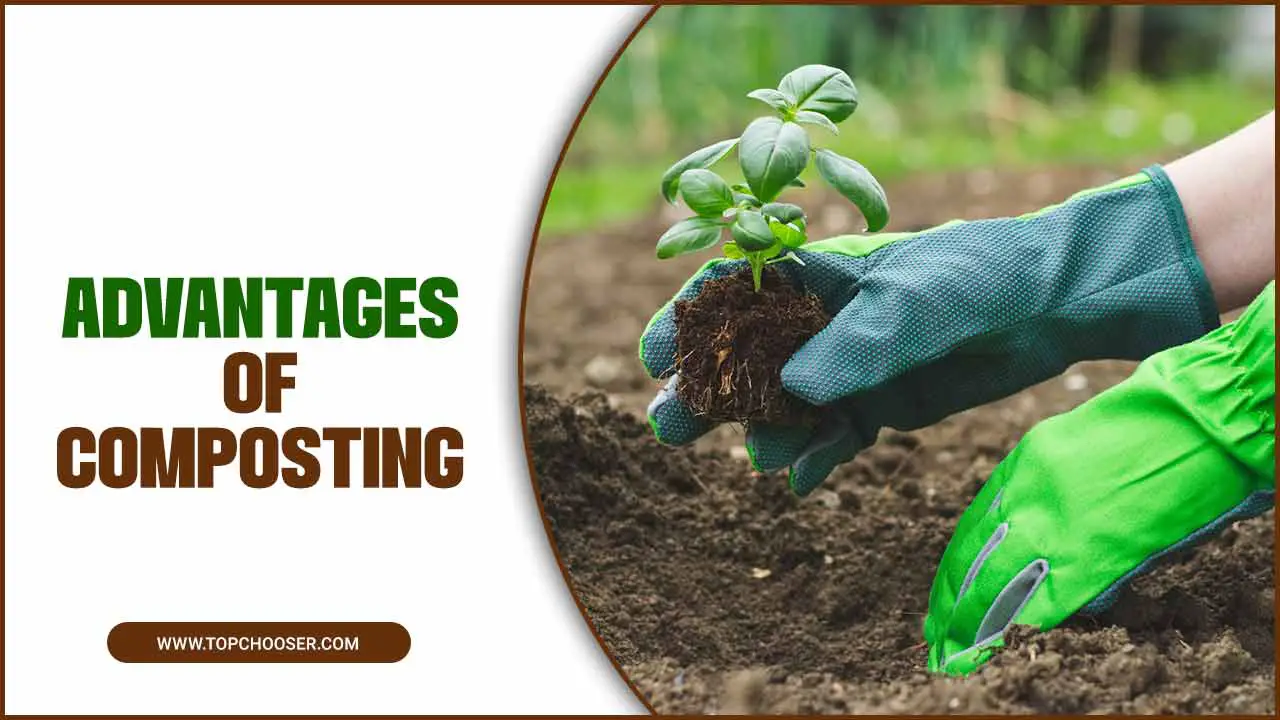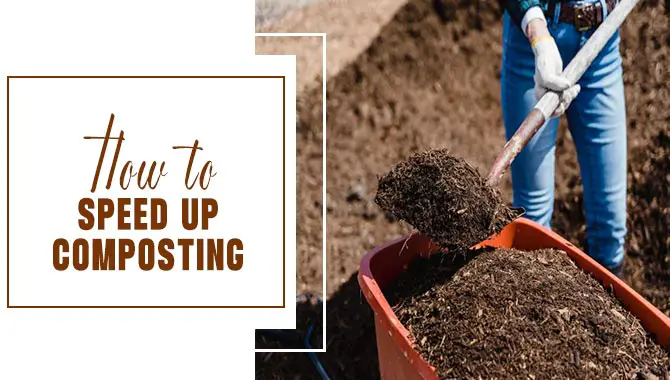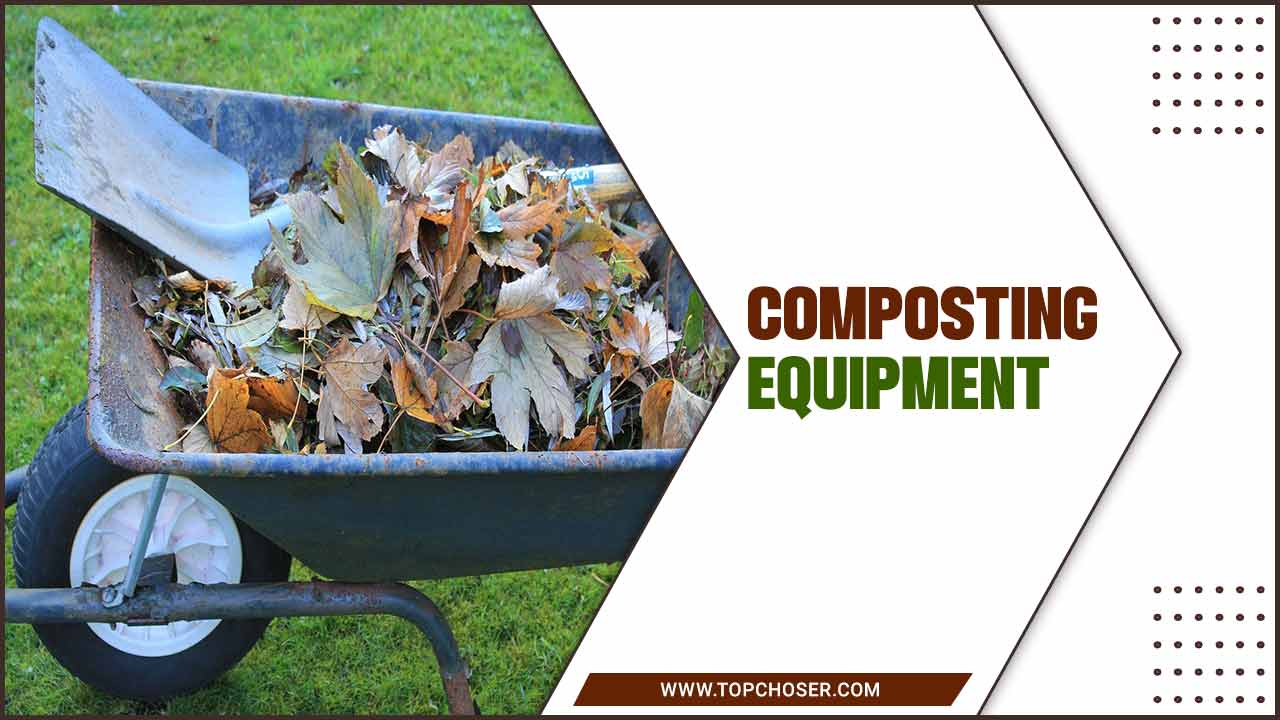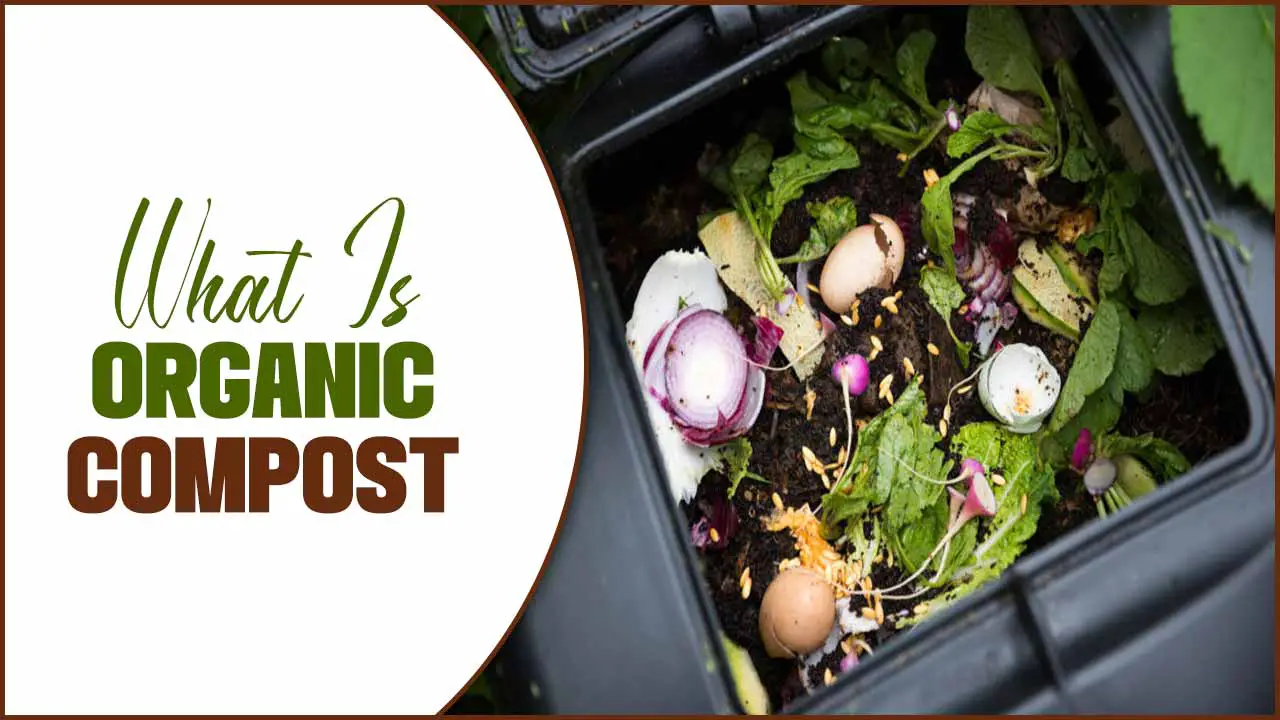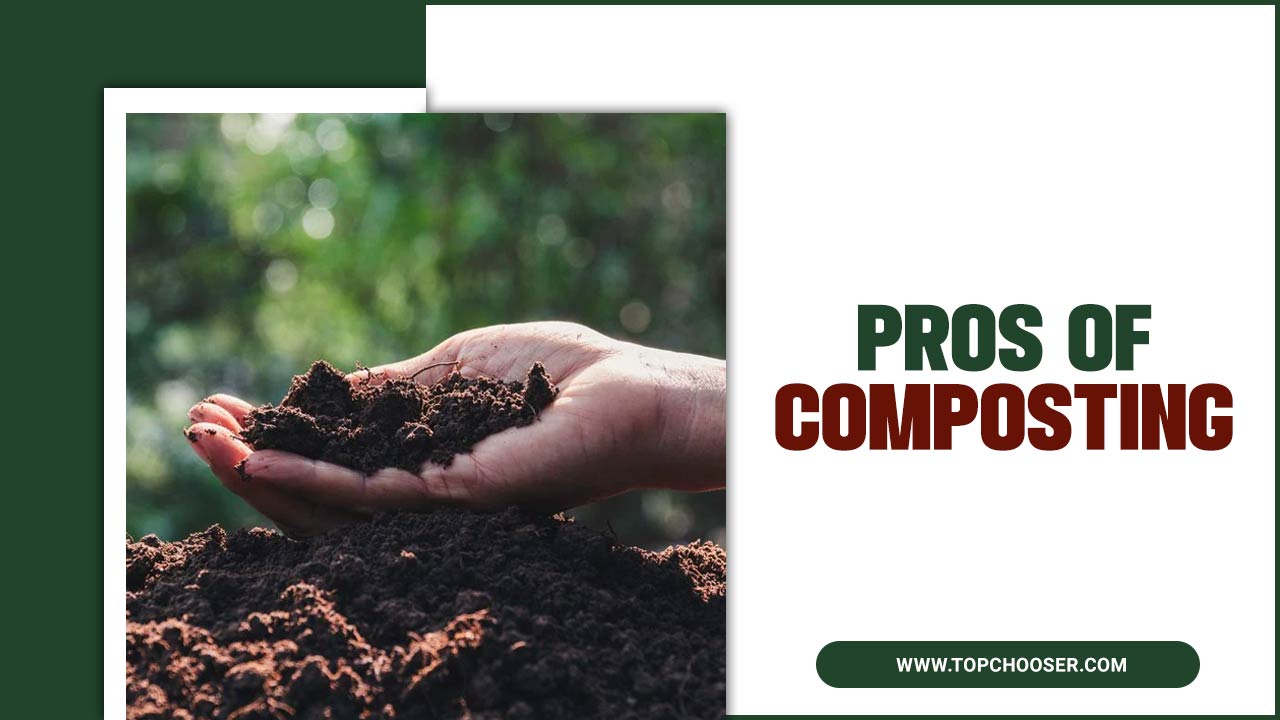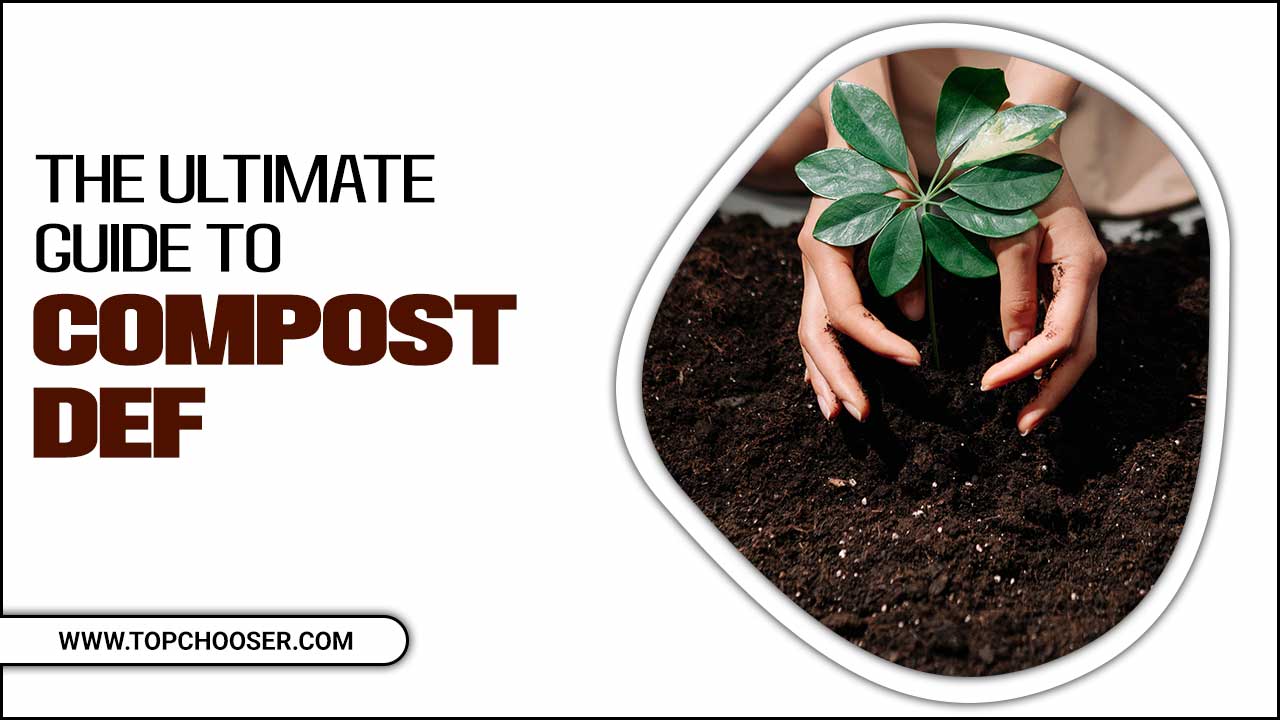Compost is a natural and sustainable way to fertilize your garden. It not only provides nutrients to your plants, but it also helps to improve soil structure, retain moisture, and promote healthy microbial activity.
Making your compost is a great way to save money and reduce environmental impact. And the best part is you don’t need to spend much money on a fancy compost bin. Plenty of DIY compost bin ideas are easy to make and can customize to fit your specific needs. From simple and small designs to larger, more complex options, there’s a DIY compost bin for everyone.
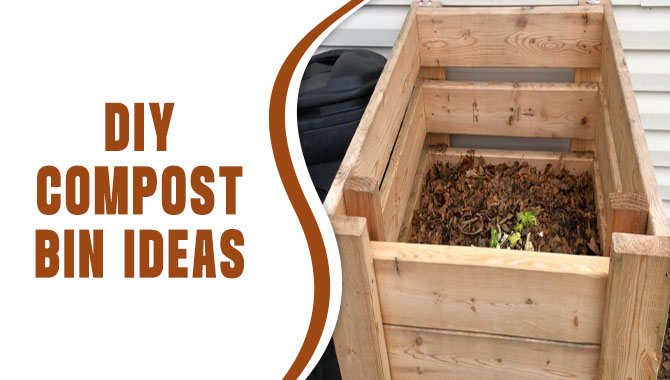
How To Revamp Your Garden With These DIY Compost Bin Ideas
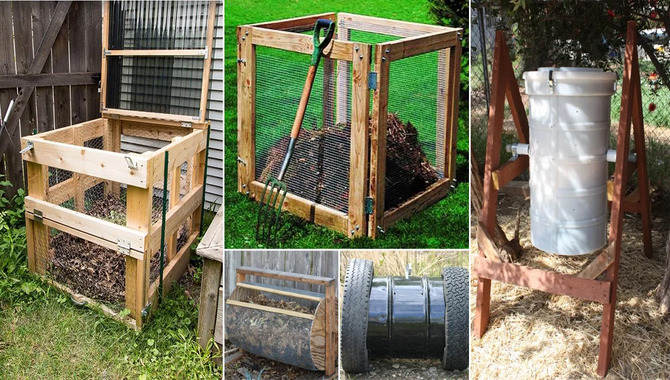
If you’re looking to improve the health of your garden and save money on fertilizer, creating a compost bin is the way to go. Composting is a great way to recycle food scraps, leaves, and other organic matter into nutrient-rich soil for your plants.
There are many different DIY compost bin ideas out there that are easy and affordable to make. One popular option is a simple wire bin, which can make by purchasing a roll of chicken wire and wrapping it around wooden stakes to create a circular shape. Another option is repurposing an old garbage can or wooden pallets to create a more enclosed compost bin. If you’re short on space, a worm compost bin is an excellent option for indoor or small outdoor areas.
It can use a plastic storage container, newspaper, and a handful of worms. Once you’ve chosen the right compost bin for your space, it’s essential to maintain it properly by adding a balance of “green” and “brown” materials, regularly turning.
Choosing The Right Composting Bin
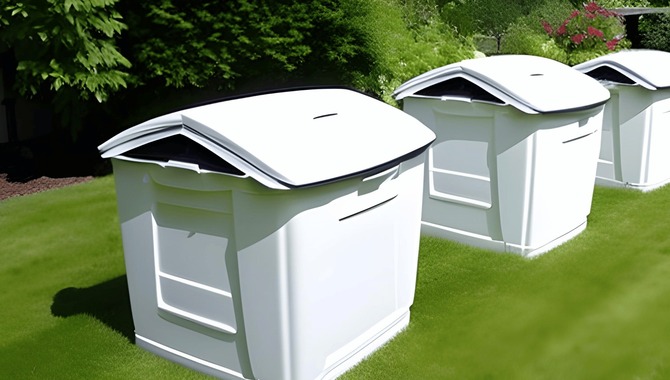
Choosing the right composting bin can be daunting, especially with many available options. With environmental concerns on the rise, more and more people are turning to compost to reduce waste and produce natural fertilizer for their gardens. The first step to choosing the right composting bin is determining your composting needs.
A small indoor composting bin may be the best option if you have a small yard or live in an apartment. However, a larger outdoor composting bin may need if you have a large garden or produce a lot of food waste. Considering the composting bin’s size, material, and design is essential. Some composting bins are made of plastic, while others are made of wood or metal.
The material will affect the durability and longevity of the container. Additionally, the design of the container should allow for proper airflow and drainage. Some containers have a tumbling mechanism, which helps to aerate the compost while
DIY Bin Ideas For Large Gardens
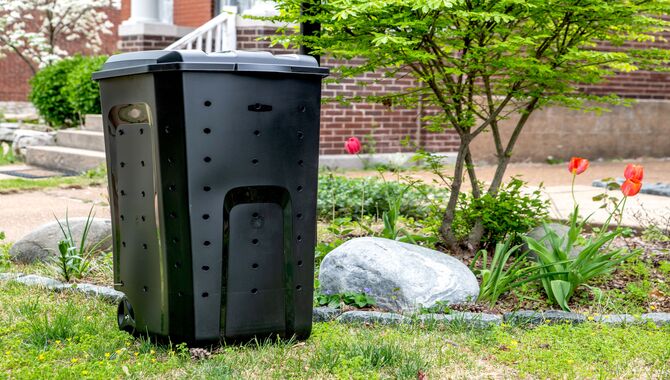
Gardening enthusiasts who own extensive gardens often find managing the waste generated from the greenery challenging. However, there are a plethora of DIY bin ideas that can be executed to solve this problem. One of the most popular DIY bin ideas is building a compost bin. Composting is a natural process that involves the decomposition of organic matter.
A compost bin can construct using wooden pallets or concrete blocks to dispose of garden waste like leaves, grass clippings, and food scraps. Another popular DIY bin idea is building a rain barrel. This bin is an excellent way to conserve water and reduce water bills. A rain barrel can make from an old trash can or a plastic drum, and it can use to store rainwater, which can use for watering plants. Lastly, a worm bin is a significant DIY bin that can help gardeners dispose of organic waste and produce nutrient-rich soil for their gardens.
Tumbling Composting Bin
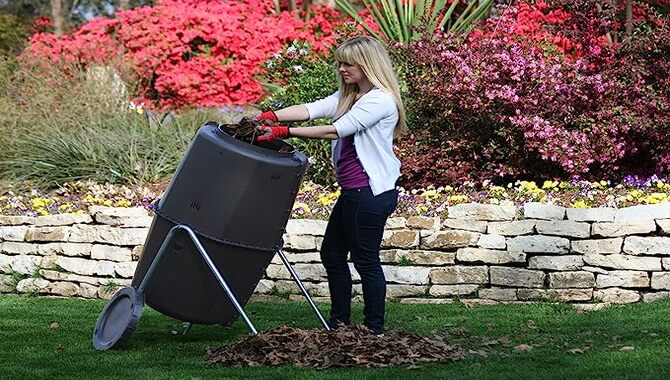
A tumbling composting bin is an innovative and efficient way to convert organic waste into nutrient-rich soil. This type of bin is designed to make the composting process much easier and faster by allowing you to turn and mix the compost with ease.
With a tumbling composting bin, you no longer have to worry about manually turning the compost pile with a pitchfork or shovel. Instead, you can rotate the container to mix the compost and ensure it gets enough air and moisture. This will help speed up the breakdown of organic material and reduce the time it takes to produce usable compost.
The design of a tumbling composting bin also makes it ideal for small spaces like urban gardens or balconies. It is a compact and convenient option that can easily move around. Additionally, a tumbling composting bin is more effective at retaining heat and moisture than traditional composting methods.
Worm Composting Bin
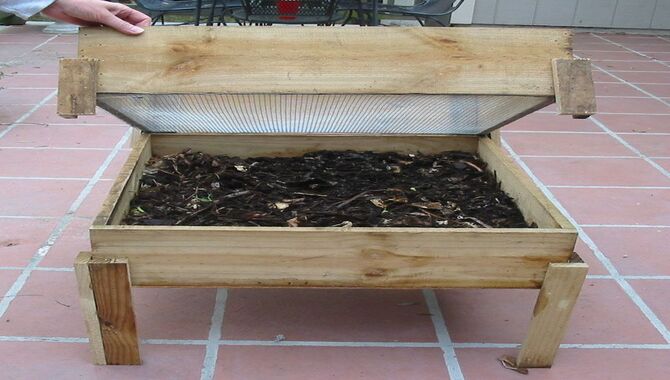
Worm composting bins are becoming increasingly popular among environmentally conscious households. These bins allow individuals to effectively process their food scraps and organic waste into rich compost, all with the help of some hardworking worms.
Not only does this reduce the amount of waste sent to landfills, but it also creates a valuable resource for gardens and plants. Worm composting bins can come in various sizes and styles, depending on the needs and space restrictions of the user. Some containers are designed for indoor use, while others are meant to be kept outside. It’s important to note that maintaining a healthy composting environment for the worms is key to the success of the bin.
This includes providing the right ratio of food scraps to bedding material, monitoring moisture levels, and ensuring proper ventilation. With a little effort and care, a worm composting bin can be a great addition to any household looking to reduce their waste and create a more sustainable lifestyle.
Garbage Can Composting Bin
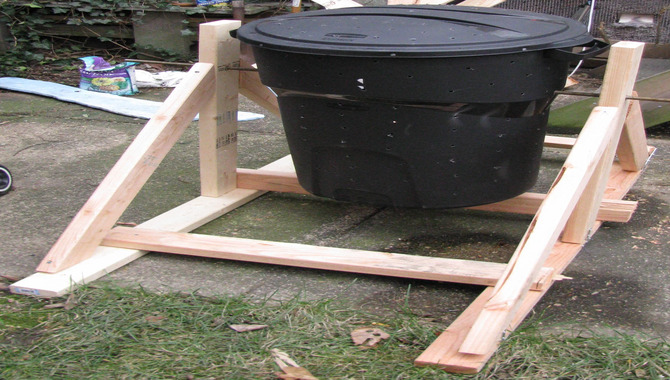
Garbage cans have been a staple in homes and businesses for decades. However, with the growing concern for environmental sustainability, people are looking for ways to reduce waste and minimize their carbon footprint.
One solution is the use of composting bins. These bins are designed to turn organic waste, such as food scraps, yard waste, and paper, into nutrient-rich soil that can use for gardening. Composting is simple: the waste is layered in the bin and left to decompose.
As it breaks down, it creates heat, accelerating the process and resulting in nutrient-rich soil that can nourish plants. The use of composting bins not only reduces waste going into landfills but also reduces greenhouse gas emissions. Garbage cans can still use for non-organic waste, but adding a composting bin can significantly reduce the amount of waste a household or business produces.
Composting Bin From Old Tires
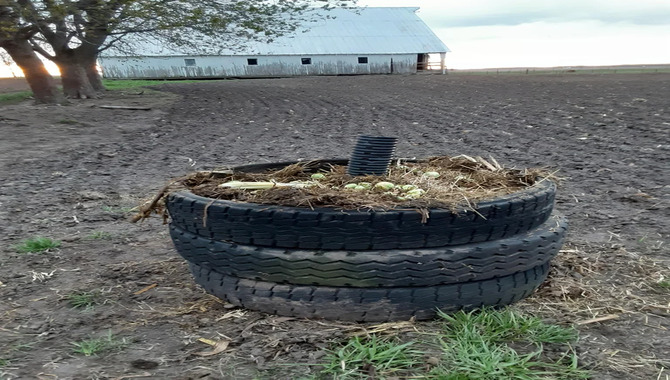
Composting is an eco-friendly way to reduce waste and produce nutrient-rich soil for your garden. You can easily make a composting bin from old tires. The first step is to find two or three old tires in good condition.
Clean them thoroughly to remove any dirt or debris. Then, place the tires in a sunny garden or backyard. Stack them on top of each other to create a three-tiered bin. Ensure the tires are securely in place to prevent them from tipping over.
Next, start adding your compostable materials to the bin. You can add grass clippings, leaves, food scraps, and other organic matter. Avoid adding meat, dairy, or oils that attract pests and create odours. Use a pitchfork or shovel to mix the materials every week or two.
Tips For Successful Composting
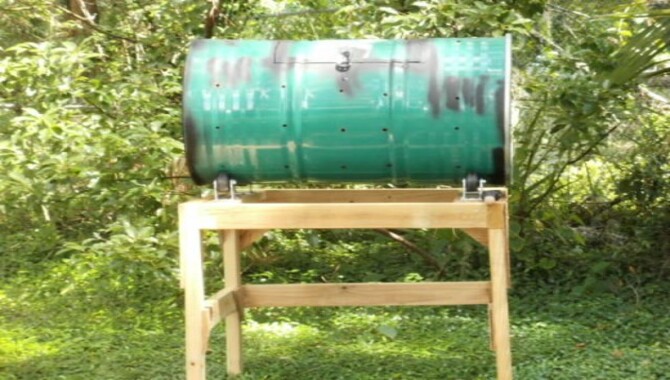
Composting is an excellent way to reduce waste and turn it into a valuable resource for your garden. However, it can be a bit tricky for beginners. Here are some tips for successful composting. Be mindful of the balance between brown and green materials.
Brown materials like leaves and twigs provide carbon, while green materials like food scraps and grass clippings provide nitrogen. The ideal ratio is 3:1 brown to green. Secondly, make sure your compost pile has good aeration.
You can achieve this by turning it regularly or adding perforated pipes to allow airflow. Thirdly, keep the compost moist but not too wet. If it is too dry, it won’t break down properly; if it is too wet, it can become smelly and attract pests. Fourthly, avoid adding meat, dairy, or oily foods to your compost pile, as they can attract rodents and take a long time to break down.
Conclusion
creating your compost bin can be an easy and rewarding DIY project. Composting reduces waste and benefits the environment, and the resulting nutrient-rich soil can significantly enhance the growth of your garden plants.
With the many options available for building a compost bin, there’s sure to be a design that fits your needs and budget. By revamping your garden with a DIY compost bin, you can give your plants the best chance to thrive while contributing to a healthier planet.
FAQs
[rank_math_rich_snippet id=”s-207836ab-7668-4775-980c-7976fb9a2f32″]

I am passionate about home engineering. I specialize in designing, installing, and maintaining heating, ventilation, and air conditioning systems. My goal is to help people stay comfortable in their homes all year long.

